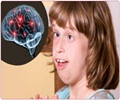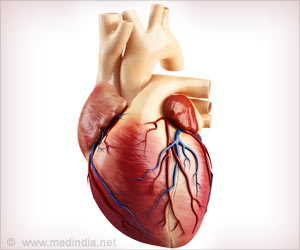In a new discovery, scientists led by those at Baylor College of Medicine (www.bcm.edu) say a genetic defect that affects the brain can stop a heart.

"The finding in mice opens the door to tailoring treatments to prevent heart rhythm problems and even deaths in girls with the disorder," said Dr. Jeffrey Neul, associate professor of pediatrics at BCM, a researcher at the Jan and Dan Duncan Neurological Research Institute at Texas Children's Hospital and the assistant medical director of the Blue Bird Circle Rett Clinic.
"We began by looking at mice whose symptoms closely mimicked that of Rett syndrome. We found that those mice also exhibited electrical malfunctions in the heart, known as long QT syndrome," said BCM collaborator Dr. Xander Wehrens, professor of molecular physiology and biophysics and the Juanita P. Quigley endowed chair in cardiology at BCM. Long QT syndrome describes an interval usually measured on an electrocardiogram or ECG. These electrical malfunctions cause that interval to be too long, which can lead to a dangerous heart beat that can cause sudden death in people.
"Long QT syndrome is found in nearly 20 percent of people with Rett syndrome," said Neul. Sudden death also occurs in a significant percentage of Rett patients, and Neul and his colleagues wonder if the two might be linked.
The gene MECP2 occurs in the genomes of every cell, providing a code for the protein associated with it, MeCP2. It can have different activities in different cells. In this study, researchers created a mouse in which MeCP2 was missing only in the brain and nervous system. Even though MeCP2 functioned normally in the heart, the heart beat abnormally.
"We showed that the heart problems were actually secondary to nervous system deficits and that cardiac activity can be remolded by abnormalities in brain activity," said Neul. "Basically, the brain is sending the wrong message to the heart leading to the malfunction."
Advertisement
Sodium currents occur naturally in cell function. When there is cell activity, sodium travels in and out of the cell through a channel that acts like a window opening and closing. Unusual persistent sodium current means the "window" doesn't close properly, causing a slow trickle of sodium to flow through the channel for a longer period of time.
Advertisement
The next step is to treat the animals long term, he said. At that same time, they plan to look at what is going on in children with Rett who are already taking these kinds of medicines to treat their seizures.
"Are the people on these drugs less likely to have long QT intervals?" he said, "More research in the lab will help us reassess what we are doing in the clinic and determine if we need to change our treatment methods," Neul said.
Source-Eurekalert














